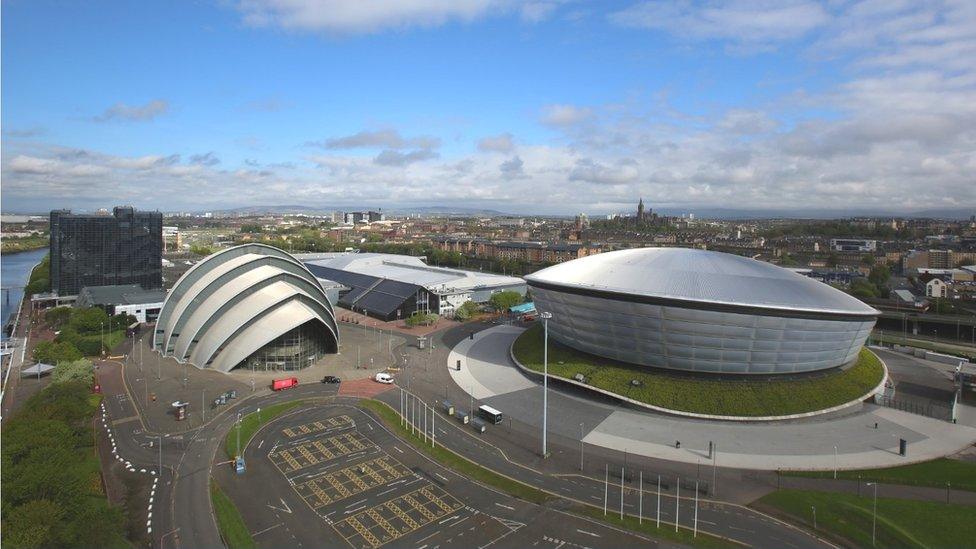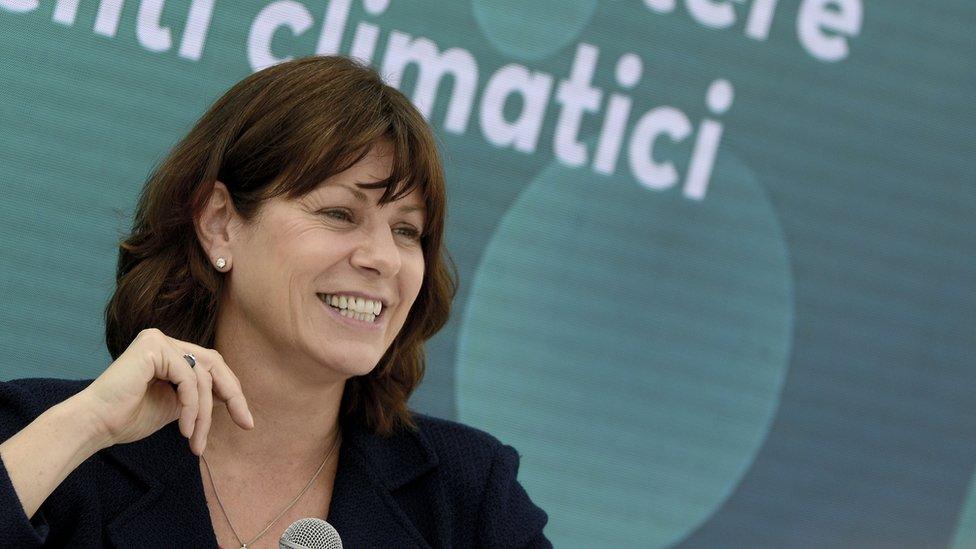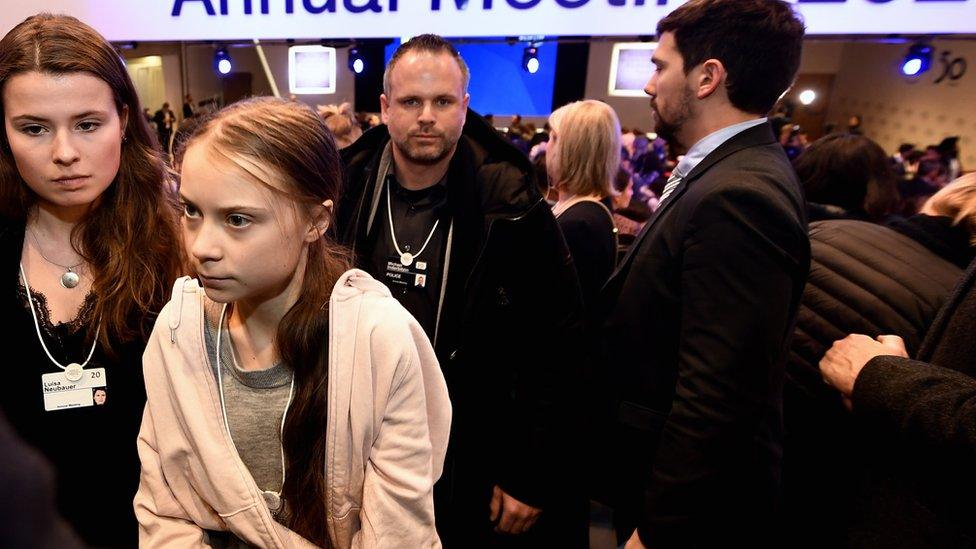Climate change: UK has 'one shot' at success at Glasgow COP26
- Published

The Scottish Events Campus includes the Armadillo and the SSE Hydro
If the Glasgow climate conference fails to deliver, it could mark the end of the global approach to tackling the problem.
COP26 in November will see around 200 world leaders meet to agree a new, long term deal on rising temperatures.
But according to Claire O'Neill, the president of COP26, the UK has "one shot" at making it a success.
She told a BBC documentary that if Glasgow fails, people will question the whole UN approach.
COP26 marks a critical moment for the UN in the long running effort to find a global solution to climate change.
As part of the Paris climate deal, agreed in 2015, countries are meant to update their carbon cutting plans by the end of this year.
So far, 114 say they have done this, or are in the process of doing so this year.

COP26 President Claire O'Neill faces a huge challenge in forging agreement in Glasgow
Another 120 countries have now told the UN that they have either agreed on plans to reach net-zero emissions by 2050 or are working towards that goal.
While this represents some progress, a key part of the Glasgow meeting will be trying to push countries to go even further.
In December, there was widespread dismay after countries failed to agree on more ambitious steps at the Madrid conference of the parties known as COP25.
The messy compromise in the Spanish capital has also left a raft of complex issues unresolved, including the use of carbon markets, plus the question of compensation for loss and damage suffered by poorer nations from storms and rising sea levels.
Underpinning the lack of progress in Madrid was the huge gap between big emitters such as Brazil, Australia, India, China and US and an alliance of countries wanting to go much faster including the European Union, small island states and vulnerable nations.
Former UK minister Claire O'Neill has been tasked with presiding over COP26 and delivering an agreement acceptable to all.

UN talks in Madrid ended in disappointment with many decisions kicked down the road
Widely seen as knowledgeable and authoritative, Ms O'Neill says that Glasgow is the best, and perhaps last chance to make progress under the long drawn out UN process.
"I think we have one shot," she said, speaking to the BBC at the end of the Madrid conference in December.
"I think if we don't have a successful outcome next year people will legitimately look at us and say 'what are you doing, is there a better way?'
"I think we have this amazing opportunity to get the world together to talk about ambition but crucially to deliver it, and I guess I am really determined to do that."
Leipzig the key?
Scientists say that to keep the rise in global temperatures under 1.5C this century, a major upgrade is needed on the plans that countries are already applying to the problem.
Delivering anything close to that type of deal in Glasgow will depend on a number of key meetings in the run up to COP26.
One of the most important is the summit between the President of China, Xi Jinping and EU leaders in Leipzig in September.
If the EU can persuade China to put an ambitious new climate plan on the table, it will significantly improve the chances of success in Glasgow.
"For China to enhance it's climate targets or not will be primarily a political and diplomatic decision, and that is precisely why the European engagement at the diplomatic level will be critical for us to unlock further climate ambition from Beijing," said Li Shuo from Greenpeace China.
"But the EU will have to have its own climate plan enhanced before the EU-China summit, and I think that's the only way to make that summit meaningful.
"The good news is that the Chinese president is coming and that provides a high level opportunity."

The influence of Swedish climate activist Greta Thunberg has grown rapidly
However, many experts are concerned that China won't show its hand until they know who will be the next president of the United States - that election will take place just six days before the meeting in Glasgow opens.
To achieve a deal, the UK will need to persuade some of the more reluctant countries like India, Brazil and Australia that it is in their interest to agree to increase their ambitions.
Rachel Kyte is now Dean of the Fletcher School at Tufts University, but was previously the World Bank's special envoy on climate change.
She believes that agreement in Glasgow will need the UK to help shift the narrative - that a new climate deal offers more opportunities for countries than challenges.
"This is completely within our means. Most of the technology we need, we have. Most of the finance we have, it's just sloshing around in the economy just really inefficiently purposed at the moment," she said.
"Governments and leaders need to understand they will be rewarded for being on the right side of history and for taking the risk, and it is one worth taking.
"It's an exciting future, it's cleaner, the air will be better - we'll have better jobs, it is not a sacrifice, it is something we owe ourselves."
Follow Matt on Twitter., external